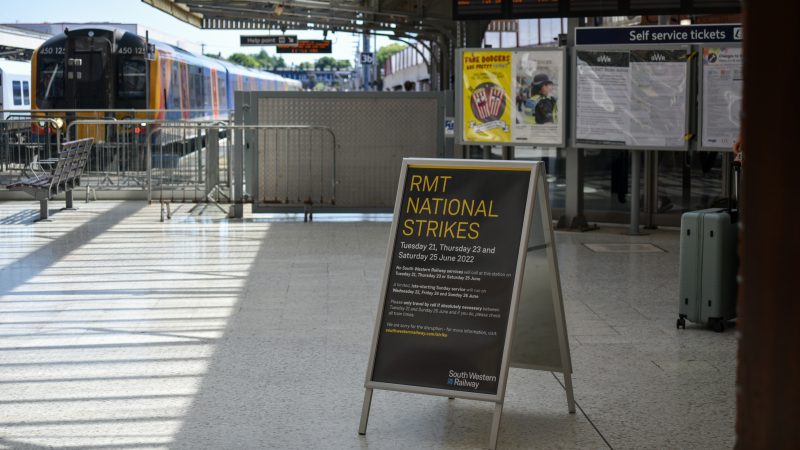
11 trade unions have launched a joint legal challenge after ministers made controversial changes to regulations earlier this year that allow the use of agency workers to cover official industrial action.
ASLEF, BFAWU, FDA, GMB, NEU, NUJ, POA, PCS, RMT, Unite and Usdaw – coordinated by the TUC and represented by Thompsons Solicitors LLP – today began legal proceedings arguing that ministers failed to consult unions “as the law requires”.
TUC-affiliated unions UNISON and NASUWT are also launching separate individual legal cases against the government’s agency worker regulations.
TUC general secretary Frances O’Grady said this morning: “The right to strike is a fundamental British liberty. But the government is attacking it in broad daylight. Threatening this right tilts the balance of power too far towards employers.
“It means workers can’t stand up for decent services and safety at work – or defend their jobs and pay. Ministers failed to consult with unions, as the law requires. And restricting the freedom to strike is a breach of international law. That’s why unions are coming together to challenge this change in the courts.”
The trade unions, which represent millions of workers across a wide range of occupations, have argued that the regulatory changes are unlawful because of a failure on the part of ministers to to comply with the requirement under the Employment Agencies Act 1973 to consult with the trade unions.
They have also said that the regulations, which were approved by MPs in July, are unlawful because they violate fundamental trade union rights protected by Article 11 of the European Convention on Human Rights, to which the UK is a signatory.
The TUC has warned that the new laws, which will allow employers to replace workers on strike with agency staff, will endanger public safety if agency staff are required to fill safety critical roles but have not been fully trained.
The TUC also recently reported the UK government to the UN workers’ rights watchdog, the International Labour Organization (ILO), over the recent anti-union and anti-worker legislation and proposals, including the government’s agency worker regulations, which the federation of unions has said breach international law.
Exclusive polling for LabourList last month, by YouGov, found strong support for the various rail strikes that have taken place over the past few months. 48% of the public said they supported rail workers striking where the dispute concerns their pay and conditions. Less than a third of those surveyed, 31%, said were opposed.
Three in five (59%) of adults told researchers that they are supportive of workers striking more generally, with that figure rising to 70% for those aged 18-34 and 73% for those currently working in the public sector.
The research, which gave as an example a scenario in which a workforce or union does not believe that the pay rise offered is satisfactory, showed that the public were most likely to support nurses (61%) taking industrial action, followed by bus drives (53%), refuse collectors, teachers and postal workers (51% each).
The study also found that half (50%) of those surveyed think that striking has a positive impact on the chance of getting better pay, although 45% said that it has a negative impact on how the public feel about their industry.
The TUC has been calling on the government to introduce stronger protections for workers. The body warned last week that another P&O-style scandal is “on the cards” if ministers fail to do so. P&O made 800 of its staff redundant with immediate effect in March, in a move that saw widespread criticism of the ferry operator.
The chief executive of P&O Ferries admitted in March that the company had broken the law by failing to consult unions “in good time” ahead of the announcement.
Polling published by the TUC earlier this month revealed strong support among voters of all parties for boosting workers’ rights. The research found that 74% were in favour of ending ‘fire and rehire’, rising to 77% among Tory voters.
68% of those surveyed supported a ban on zero-hours contracts – including 66% of Tory voters – while 77% were in favour of the introduction of ‘fair pay agreements’ across whole sectors, rising to 78% among Conservatives.
Commenting on the findings in an interview with LabourList, O’Grady said: “We’re sending a big message to Liz Truss, which is: ‘Don’t be the Prime Minister for P&O.’ Slashing workers’ rights is not going to deliver growth. On the contrary, it will hurt the country and hurt working people.”




More from LabourList
‘Labour is being badly misled on housing’
Reeves bets on patience over populism
‘Energy efficiency changes must work for older private renters’